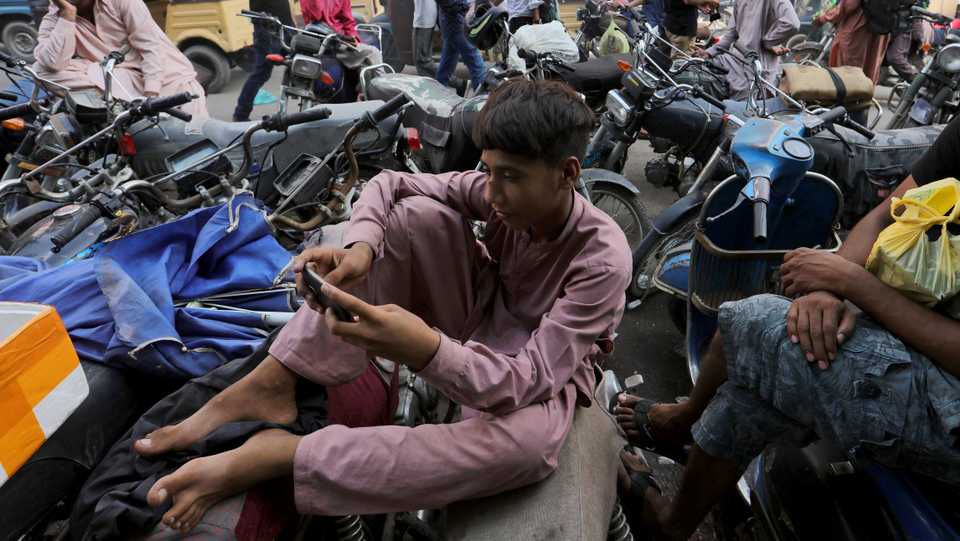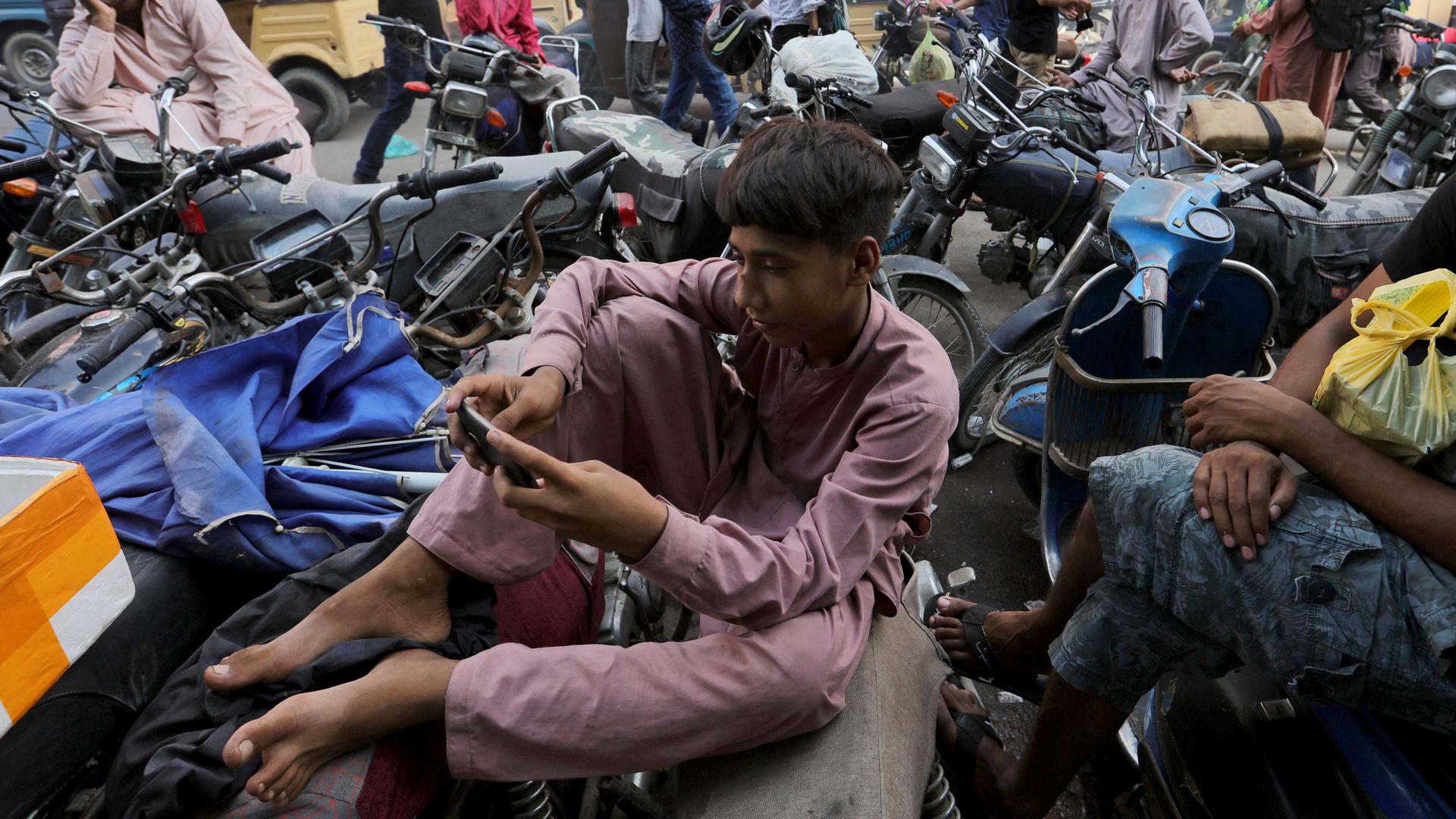
Pakistan has banned the wildly popular video-sharing app TikTok, as authorities press their clampdown on “immoral” content.
The Pakistan Telecommunication Authority (PTA) on Friday said TikTok had failed to adhere to two warnings, which had demanded it block “immoral, obscene and vulgar” content.
“The application failed to fully comply with the instructions, therefore, directions were issued for blocking of TikTok application in the country,” the PTA said in a statement.
Pakistanis were unable to access the app on Friday evening.
PTA said it would review its decision if the app put in place mechanisms to moderate unlawful content.
In a statement, TikTok said it was “hopeful to reach a conclusion that helps us serve the country’s vibrant and creative online community.”
READ MORE: TikTok: An escape for rural Indian women who found fame and fun
Backlash in largely conservative country
Chinese-owned TikTok which has become a global sensation with its short video clips has a huge user base among young Pakistanis, with some attracting millions of followers.
But it has come up against backlash in the largely conservative country, where in recent months several dating apps including Tinder and Grindr have also been banned and YouTube threatened with shutdown.
PM Khan against vulgar content
Muslim-majority Pakistan has media regulations that adhere to conservative social customs.
In July, the telecommunications regulator issued a “final warning” to TikTok over provocative content.
The decision was taken after Prime Minister Imran Khan took a keen interest in the issue, said a Pakistani official, adding that Khan has directed the telecoms authorities to make all efforts to block vulgar content.
Usama Khilji, director of Bolo Bhi, a Pakistani group advocating for the rights of internet users, said the decision undermined the government’s dreams of a digital Pakistan.
“The government blocking an entertainment app that is used by millions of people, and is a source of income for thousands of content creators, especially those coming from smaller towns and villages, is a travesty to democratic norms and fundamental rights as guaranteed by the constitution,” said Khilji.
Arslan Khalid, a digital media adviser to PM Khan, has previously claimed the “exploitation, objectification and sexualisation of young girls on TikTok” was causing pain to parents.
‘Ban is unfair’
Earlier this week, Pakistani TikToker Jannat Mirza became the first in the country to reach 10 million followers, with lip-syncing and slow-motion clips among her content.
Akhlaq Ahmed, who ran a TikTok account with friends from the remote town of Jhal Magsi in Balochistan province, said the news was like “losing someone from my family.”
“The ban is unfair and unjustified … instead of banning the app the PTA should have called on TikTok to ban those users,” he said of the “immoral” content.
READ MORE: Egypt jails female TikTok stars, again showing limits to free expression
Banned elsewhere
The app was blocked in Bangladesh last year as part of a clampdown on pornography, while Indonesia briefly blocked access over blasphemy concerns.
Owned by China’s ByteDance, it has also faced increasing controversy over how it collects and uses data although it has repeatedly denied sharing user information with Chinese authorities.
The app is facing a possible ban in the United States after officials said it was a national security risk and President Donald Trump said he wanted it taken out of Chinese hands.
Neighbouring India has already banned the app, along with dozens of other Chinese mobile platforms.
READ MORE: Pakistani female-centric drama back after being briefly taken down










Discussion about this post